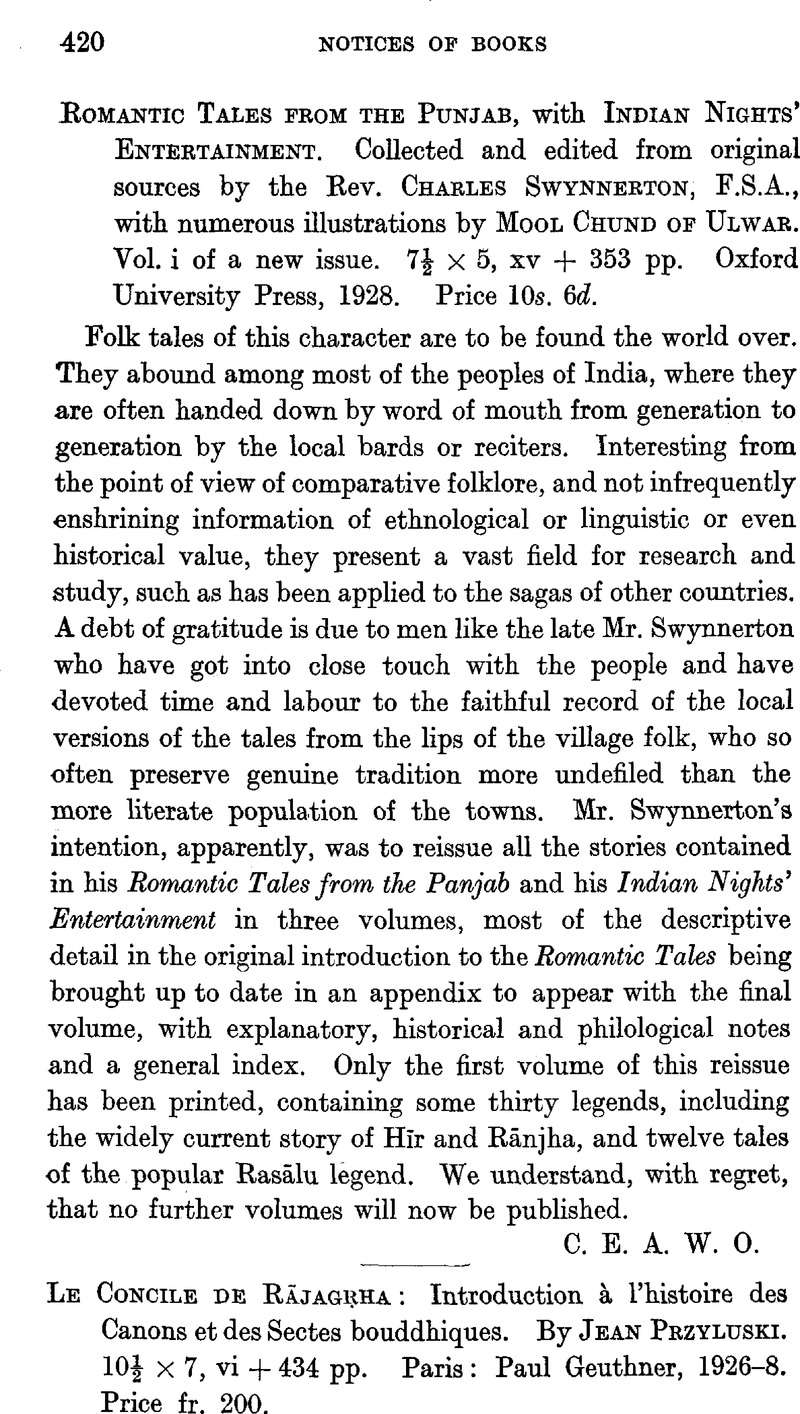No CrossRef data available.
Published online by Cambridge University Press: 15 March 2011

Page 422 note 1 Is it not possible, by the way, that the che-li grove of this version (according to Przyluski che-li = śirīṣa, a sub-Himalayan acacia) is identical with the Anjanavana on the Sarabhū of the commentary on Theragāthā, 38 ? The tree indicated by anjanais uncertain and the trees of similar names in the modern vernaculars do not belong to Oudh. I would suggest that it might mean the sisam, Dalbergia latifolia, which Watts notes as being said to produce a gum and an oil. It is not uncommon in this part of India and Watts gives siras as one of its vernacular names, which seems to imply a confusion of name with the śirīṣa.